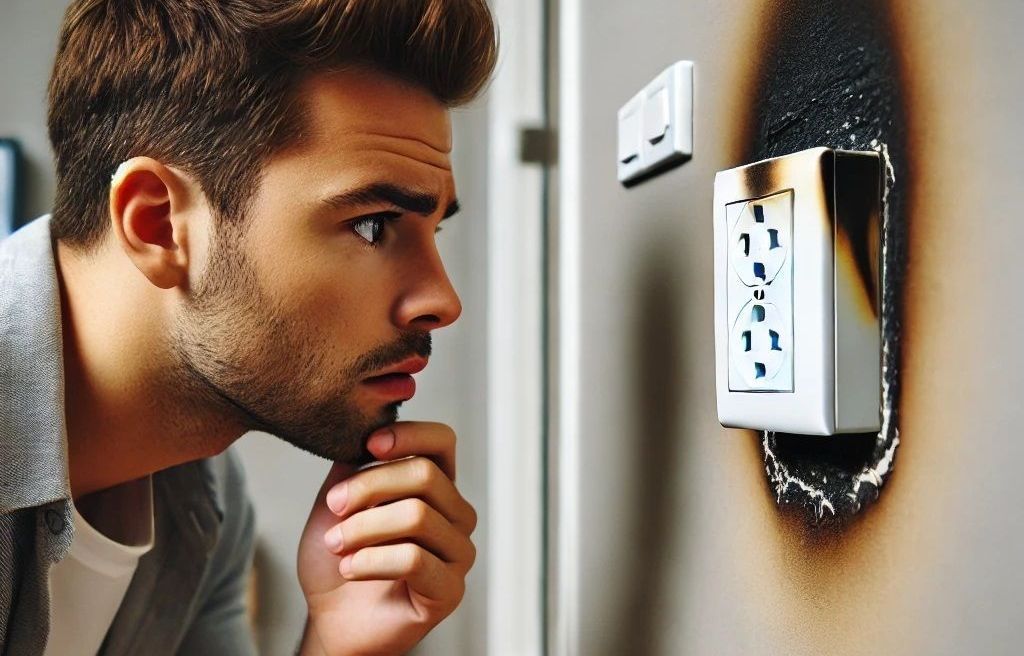Why Your Lights Dim And Burning Electrical Smells
Experiencing dimming lights or a burning smell in your home? These signs can indicate serious electrical issues that require immediate attention.

If you're experiencing dimming lights or noticing a burning electrical smell in your home, it's not just a minor inconvenience—it could be a sign of a serious electrical issue. In the Dallas-Fort Worth area, where homes are a mix of newer builds and older properties, these issues can crop up for a variety of reasons. Understanding the causes and knowing when to call a professional can keep your family safe and prevent costly repairs.
Common Causes of Dimming Lights
- Overloaded Circuits
In older homes, circuits may not be equipped to handle modern electrical demands, causing dimming when high-power devices are in use. Homes with outdated systems, especially those over 30 years old, are at higher risk for electrical fires . - Loose or Faulty Wiring
Loose connections can lead to inconsistent power, resulting in flickering or dimming lights. Over time, this can escalate into dangerous conditions, such as electrical arcing, which increases fire risks. - Faulty Light Fixtures
In some cases, older light fixtures may be the problem. If replacing the bulb doesn’t resolve the issue, the wiring or fixture could be faulty.
Causes of Burning Electrical Smells
- Overloaded Circuits
When circuits are overloaded, the wires may overheat, leading to a burning smell. This is especially common in homes with outdated wiring systems. According to the Electrical Safety Foundation International (ESFI), home electrical fires account for about 51,000 fires annually in the U.S., causing $1.3 billion in property damage . - Short Circuits
A short circuit happens when electrical currents flow where they shouldn’t, often causing sparks and burning odors. This is dangerous and should be inspected immediately. - Malfunctioning Appliances
Appliances with faulty wiring can cause electrical components to overheat and emit a burning smell. If this happens, unplug the appliance and consult a professional.
What You Should Do
- Turn Off the Power
If you notice dimming lights or a burning smell, turn off the power to the affected area and unplug any connected devices. - Call a Licensed Electrician
Electrical work is not a DIY project. The ESFI recommends having your home inspected by a licensed professional to avoid the risks of outdated or overloaded systems .
Preventing Electrical Issues
- Regular Inspections
Homes over 30 years old should be inspected regularly for electrical hazards. According to the National Fire Protection Association (NFPA), electrical distribution systems are the third leading cause of home fires . - Don’t Overload Circuits
Avoid plugging multiple high-power devices into a single circuit to prevent overloading and overheating.
Conclusion
If your lights are dimming or you notice a burning smell, don’t wait to take action. Electrical issues pose a serious safety risk, and the sooner you address them, the better. If you're in the Dallas-Fort Worth area and need professional help, reach out to a licensed electrician to keep your home safe.

Want to book online?
Have a question?
Fill in the form below and we'll get back to you as soon as possible.
You might also like

Share
SWAN ELECTRIC, PLUMBING, HEATING & AIR
Swan Plumbing Heating & Air (Swan Electric, Plumbing, Heating & Air), 309 US Highway 80 E Sunnyvale, TX 75150 USA
OUR LICENSES
M42142
TACLA00088149R
TECL 35435
QUICK LINKS
All Rights Reserved | Swan Electric, Plumbing, Heating & Air





